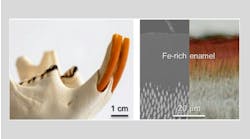Determining dental team member compensation can be somewhat daunting for dentists who did not receive much business training in dental school. But there are steps to make the task easier, and to get team members involved and productive.
__________________________________________________________________________________________________________________________
This article originally appeared in the Principles of Practice Management e-newsletter. Subscribe to this informative twice monthly practice management ENL here.
It can be overwhelming to effectively manage dental team compensation. It requires careful review of finances, team member performance, and comparable market salary data. Compensation is one of the highest controllable expenses of a dental practice. Because financial and personnel skills aren’t usually taught in dental schools, it’s completely understandable why many dentists find these tasks somewhat daunting.
4 strategiesevery dentist should know to successfully manage practice compensation
1. Review profit growth
To spend money, you need to make money. Compensation decisions must be based on THE FISCAL HEALTH OF THE PRACTICE. Start by looking at annual revenue and profit growth. Staff raises and bonuses should be based on overall practice revenue growth and increased profits. If the practice had no revenue or profit growth, it might be wise to delay raises. Many dentists feel obligated to give salary increases or bonuses, but doing so without any growth means they must likely take money out of their own pockets. Team members should know upfront that raises or bonuses are dependent upon the practice meeting or exceeding projected revenue and profit goals.
2. Evaluate competitive market compensation
Carefully evaluate team compensation to make sure it’s commensurate with both market and industry standards. Nobody wants to be that practice, the one that doesn’t offer competitive compensation. Many dentists are surprised to learn THEY’RE EITHER OVERPAYING OR UNDERPAYING TEAM MEMBERS. That’s why it’s important to routinely look at market wage data and bonus practices in your area to determine hygienist, dental assistant, and front desk compensation. Having this information helps establish appropriate compensation levels for existing team members and new hires. Competitive and fair staff wages are essential to creating and retaining a productive and engaged team that drives patient satisfaction and increases practice profitability. Reliable wage data is available from several online sources, including the ADA, Bureau of Labor Statistics, and Salary.com. Knowledge is power.
3. Gain employee buy-in
Employees appreciate knowing they are a vital part of the team and that their performance contributes to the overall success of the practice. EMPLOYEES WANT TRANSPARENCY AND A CLEAR UNDERSTANDING of their compensation plan with no back-end surprises. Give employees the tools to help them perform their jobs well. Provide constructive feedback and coaching so they know how they’re doing. For the practice to reap rewards, everyone must do their best and work together.
4. Develop a productive team
Everyone has had less-than-stellar (but sometimes necessary) employees. Other team members tolerate them, and they’re typically incentivized by pay increases. Why? Because they’re good at doing an important function for the practice, and they become “indispensable” in the dentist’s mind. NO EMPLOYEE IS INDISPENSABLE. This situation causes dissatisfaction and tension within the team. To avoid this issue, carefully detail each team member’s job responsibilities, performance goals, and expectations, along with requirements for positive attitudes and teamwork. All team members should do their jobs well and be positive team players.
Action plan: implementing strategies
• Determine appropriate market pay scale for each position—Obtain a salary survey and establish salary bands. Salary bands are groupings of prevailing salary rates based upon employees’ or candidates’ level of experience. Determine entry-level, mid-career, and senior-level pay rates for each position. This valuable information guides dentists’ hiring and raise decisions.
• Develop comprehensive job descriptions for each position—Think through each position’s duties and responsibilities. A good job description concisely explains required skills, duties, education level, and hours, so employees or candidates understand the position. The description should also include a synopsis of expected employee behavior. Be as accurate as possible so that employees know what to realistically expect. It’s up to the dentist to make sure employees do their jobs well. That’s why it’s important to be as specific as possible about all job responsibilities.
• Explain the compensation process to your team—Answer questions and always be transparent. It’s essential that team members thoroughly understand their job responsibilities and expectations. Meet individually with team members to ensure their understanding of the compensation plan and expectations. Take time to answer questions. This process will pay handsome dividends in the long run.
• Ensure team accountability based on responsibilities and performance standards—Don’t wait for year-end to inform your employees how they’re doing. Establish regular constructive feedback and coaching to improve performance with frequent reviews and evaluations. Your team will appreciate it! If an employee’s performance is not meeting expectations and the dentist doesn’t address it or provide help, there’s only one person to blame—the dentist.
• Review revenue, team performance, and potential raises at fiscal or year-end—Determine top performers based on clearly communicated standards and reward them first. Next, look at employees who didn’t meet expectations and consider alternative options, that is, provide development or look for new talent. Have formal reviews with team members to discuss their performances versus expectations, and provide feedback about things done well and areas for improvement. Explain how decisions were made and always reward based on established standards. If possible, complete the review process at the same time every year. It sets a rhythm for you, the team, and the practice.
Well worth the effort
Managing practice compensation doesn’t have to be a complex process. Using these four strategies will help your practice be competitive for talent, enhance team performance, and increase productivity. It takes time and dedication to apply these concepts and develop a solid compensation plan.When done right, you will see an improved bottom line, stronger teams, and increased employee and patient satisfaction.








